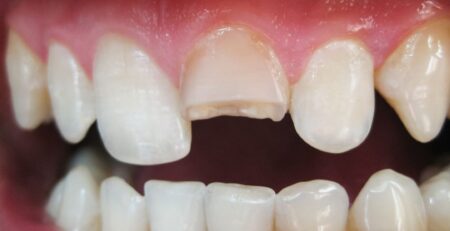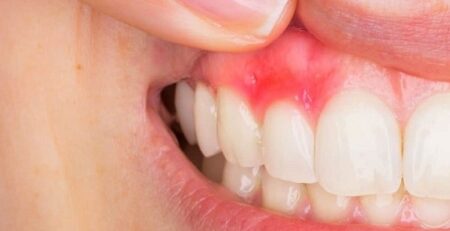Strategies to Reduce Tooth Sensitivity Symptoms and Causes

How to Reduce Tooth Sensitivity Symptoms and Causes
Introduction
Do you struggle with tooth sensitivity? If so, you’re not alone. Many people experience discomfort and pain when eating or drinking hot, cold, sweet, or acidic foods. At Wide Bay Central Dental in Hervey Bay, we understand how frustrating this can be. That’s why our team of experienced dentists is dedicated to helping you find a personalized treatment plan that addresses your unique needs.
We take a thorough and personalized approach to diagnosing and treating tooth sensitivity. Our team will work closely with you to identify the underlying factors that are causing your discomfort and provide you with the best possible solution. Whether you need a simple adjustment to your oral care routine or a more involved treatment plan, we’re here to help you achieve a healthy, pain-free smile.
What is tooth sensitivity?
Tooth sensitivity is a common dental issue that causes pain and discomfort when consuming hot or cold drinks and food, sweet treats, or acidic foods. This can range from a slight twinge of discomfort to intense sharp pain.
What Causes Tooth Sensitivity?
There are several potential causes of tooth sensitivity:
1 – Gingivitis: This is the earliest stage of gum disease and can cause inflammation and sensitivity in the gums.
2 – Periodontitis: When left untreated, gingivitis can progress to periodontitis, which causes receding gums that expose the tooth’s root and make it more sensitive.
3 – Dentin hypersensitivity: This occurs when dentin becomes exposed due to enamel erosion or receding gums, leading to sudden pain upon exposure to hot or cold foods and drinks.
4 – Teeth grinding/bruxism: Bruxism puts excessive pressure on the teeth which can weaken enamel and lead to sensitivity.
5 – Hard bristle brushing/brushing too hard: Vigorous brushing too often with a hard-bristled toothbrush can wear away enamel, leading to sensitive teeth.
6 – Acidic food & drink intake: Consuming too many acidic foods and drinks (such as soda) will cause the natural demineralization of the teeth over time, causing them to become more sensitive.
7 – Certain dental procedures such as whitening & restorations: Procedures like these may be necessary but they also may cause the teeth to become more sensitive for a time.
How To Prevent Tooth Sensitivity?
At Wide Bay Central Dental Clinic, we recommend practicing good oral hygiene habits to prevent tooth sensitivity. This includes brushing your tooth twice a day with fluoride toothpaste, flossing daily, and using an antiseptic mouthwash. Additionally, avoiding foods and drinks that are high in sugar and acid can help protect your tooth from enamel erosion.
Wearing a mouthguard while playing sports or grinding a tooth can also help protect the tooth from damage, and regular teeth cleanings and check-ups at your dentist will help identify any dental issues that may be contributing to tooth sensitivity.
What is the difference between tooth sensitivity and toothache?
It is important to note that sensitivity and toothache are two different issues. While tooth sensitivity is a sharp, fleeting pain when consuming hot or cold food that can be caused by enamel erosion, a toothache is typically a more intense, lingering pain caused by an infection in the tooth root or inflammation of the surrounding gums and tooth.
If you’re experiencing a toothache, it is important to visit our emergency dentist at Wide Bay Central Dental Clinic right away to avoid further damage to the tooth root or gums.
How can I reduce tooth sensitivity discomfort?
Tooth sensitivity can be treated in a number of ways, depending on the severity and underlying cause of the issue. Here are some common treatments for sensitivity:
Desensitizing toothpaste: This type of toothpaste contains compounds that block nerve signals in the teeth, reducing sensitivity.
Fluoride treatment: A fluoride gel or varnish can be applied to the teeth to strengthen the enamel and reduce sensitivity.
Dental bonding: If sensitivity is caused by exposed tooth roots, dental bonding can be used to cover the roots and protect them from further damage.
Gum grafting: If gum recession is causing sensitivity, gum tissue can be grafted onto the affected area to protect the roots.
Root canal: In severe cases where tooth sensitivity is caused by nerve damage or infection, a root canal procedure may be necessary to remove the damaged nerve and restore the tooth.
It’s important to consult with our dentist to determine the best course of treatment for your individual needs.
Here at our dental clinic, our team of experienced dentists are dedicated to helping you find the solution to your teeth sensitivity issues. With personalized tooth sensitivity treatment plans and a wide range of preventive dental services, we can help ensure that you have healthy tooths and gums to keep tooth sensitivity discomfort to a minimum.
Conclusion
At Wide Bay Central Dental Clinic, we understand the discomfort and disruption teeth sensitivity can cause in everyday life. We are committed to providing the best and most effective tooth sensitivity treatments to help our patients achieve optimal oral health. If you are experiencing sensitivity, contact us today to schedule an appointment to discuss your treatment options. Our team of experienced dentists are here to help!





